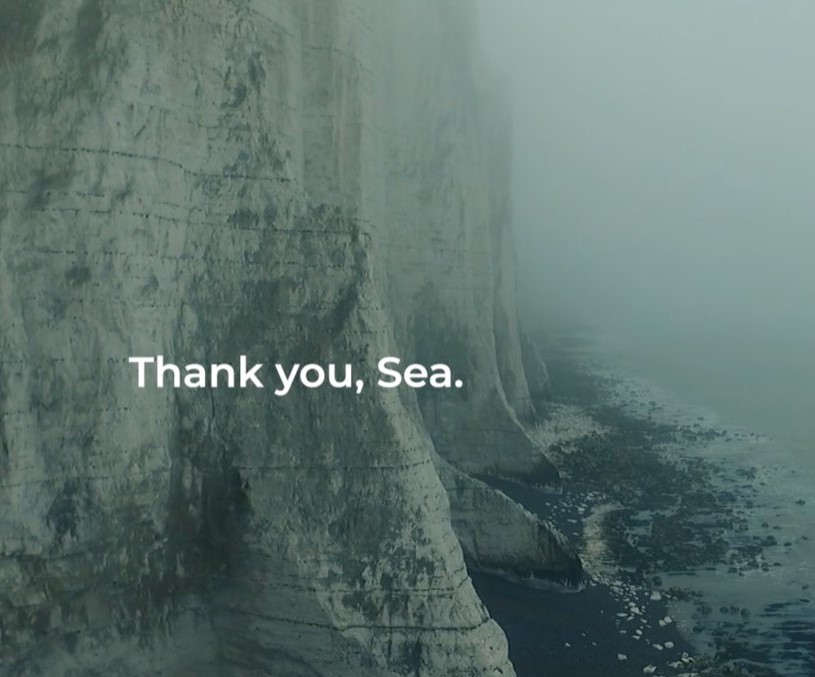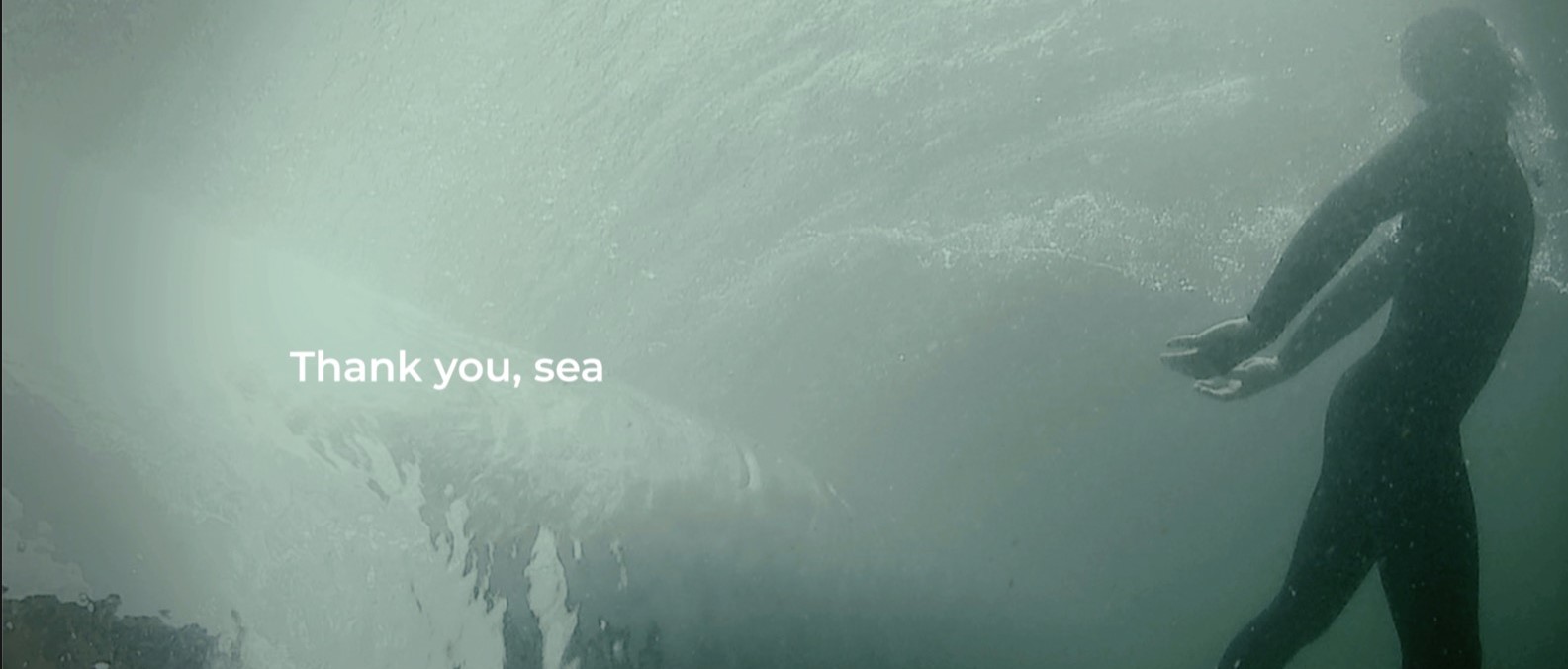
World Ocean Day – Lifting Baseline Syndrome
We have all been unavoidably exposed to the dropping tide of nature, each successive generation born to a newly diminished wild world and accepting it as the environmental standard, or baseline, that they should fight to protect. This is due to the lack of experience and loss of exposure to past environmental, biodiversity and wildlife conditions, known as Shifting Baseline Syndrome[i], and progressively obscures our view of what a thriving, complex and wild world should be, pulsating with diverse life from the seabed to mountain peaks.
What society actually needs now is Lifting Baseline Syndrome – an expectation of more nature from generation to generation. Today, World Ocean Day, give us the chance to reflect on the importance of the ocean for people, planet and biodiversity. Our new film, Thank you Sea, made from recycled content and words from Surfers Against Sewage supporters reminds us of the deep connection we have with the ocean of the beauty we must protect and restore blow the waves.
For centuries we have been collectively gaslighted to the benefits of the industrialisation and control of nature, at best tacitly supporting the corporate rampage through the wilderness, at worst applauding from our concrete isolation. All whilst ignoring the far more precious intrinsic and essential benefits nature provides us in its highly-evolved and mind-boggling complexity. Nature makes our best super computers look basic.
This Ocean Decade presents us with a unique and, some might say, final opportunity to redress our imbalance with the marine and other ecosystems we depend on. An opportunity to make space for more nature for our successors, not less. We must seize the opportunity to reject the ‘business as usual’ that has got us into this and embrace the unusual – the weird, wild, wonderful and intricate nature around us that we depend on.
Human civilisation has already eradicated 83% of wild mammals[ii] on the planet and over half of plants. Almost 90% of global fish stocks are over-exploited, depleted or fully exploited[iii] – with subsidies enabling industrial fishing fleets to hoover up all life from large swathes of the ocean, leaving behind lifeless deserts of destruction. There are increasing numbers of ‘Dead Zones’[iv] in the ocean – 400 and counting – where excess nutrients and runoff from agriculture and cities halts life in its tracks. Consumption and convenience drive over 12 million tonnes of plastic pollution[v] into the ocean every year.
Delivering Lifting Baseline Syndrome – increasing biodiversity, wild biomass and restoring ecosystems – is no longer just the domain of the progressive green lobby, but sits firmly at the top-table of G7 leaders and global governments. We have a lot to do to repair our relationship with nature and realise that in protecting Planet Ocean we are in fact protecting ourselves.
In what has to be the decade of environmentalism, the current cascade of national and international rhetoric, targets and commitments is accelerating at a welcome pace but this must be matched with action. The measure of success is when the public witnesses the increase in nature – more forests, more wildlife, more whales, more fish – more diverse and complex life on Planet Ocean.
World Ocean Day has grown to become a focal point for action – perhaps because the ocean is the last, vast wilderness that offers us the most hope for a transformational decade of action. It provides the foundations to change our relationship with nature from destructive and exploitative to restorative and truly sustainable. We do however need to be careful of the so-called ‘blue economy’ and make sure that the blue gold rush doesn’t diminish the ocean in the same way as terrestrial ecosystems.
We must pay heed to the cautionary tale of what the full industrialisation of most of the land has done. Agriculture currently takes up over 50% of habitable land[vi], with most of that used to raise livestock at a huge cost to the environment. We cannot afford for the ocean to become a patchwork of blue fields and industry, extracting ever more from the sea.
The ocean can provide us much more if left alone to recover. The ocean can provide for the many, not the few, if allowed to.
This year, at the start of the Ocean Decade, the UK has the huge responsibility of the G7 Presidency to unite leading democracies to ensure we build back better from the global pandemic and create a greener, bluer, more prosperous future for all. Taking place in just a few days on the rugged coastline of Cornwall – the home and centre of energy for Surfers Against Sewage – the Atlantic vista will hopefully ensure that our leaders will place ocean recovery at the heart of human recovery.
The UK is leading strongly and we must all welcome the commitment from all G7 countries to the 30×30 target to protect 30% of our land and seas by 2030. Impressively, the UK has committed to halting and reversing biodiversity loss by 2030 – a soon to be legal requirement that will need huge action and investment to deliver. It will be up to all of us to hold their feet to the fire with these new commitments and the guarantees to put the environment, climate and biodiversity and the heart of global recovery from the Covid crisis.
As the hosts of COP26, the UK government also has a responsibility to make sure the ocean is at the forefront of climate negotiations.
But the ocean also has a crucial role to play in tackling the climate crisis. From seagrass meadows and kelp forests that lock carbon deep below the sea floor, to ocean currents that regulate global temperatures, the ocean can provide vital solutions.
The restoration and full protection of massive bands of the ocean can be central to solving the convergence of mounting and emerging issues incuding the climate crisis, biodiversity loss and threats to human wellbeing globally.
Decisions made this year in the UK, at the G7 Summit in Cornwall and COP26 in Glasgow, will set our course for how we recover not just from the pandemic, but also allow the blue planet to recover from the scars of our developing society. The time is now to reinstate ourselves as a part of nature and learn what we can and, more importantly, what we can no longer take from nature.
We must now ensure that the action matches the rhetoric, and that the ocean truly becomes central to the recovery of this beautiful planet we call home.
Sign the ocean & climate petition to make the voice of the ocean heard.
[i] The Society for Conservation Biology (wiley.com)
[ii] Humans just 0.01% of all life but have destroyed 83% of wild mammals – study | Wildlife | The Guardian
[iii] Nearly 90% of fish stocks are in the red – fisheries subsidies must stop | World Economic Forum (weforum.org)
[iv] Spreading Dead Zones and Consequences for Marine Ecosystems | Science (sciencemag.org)

